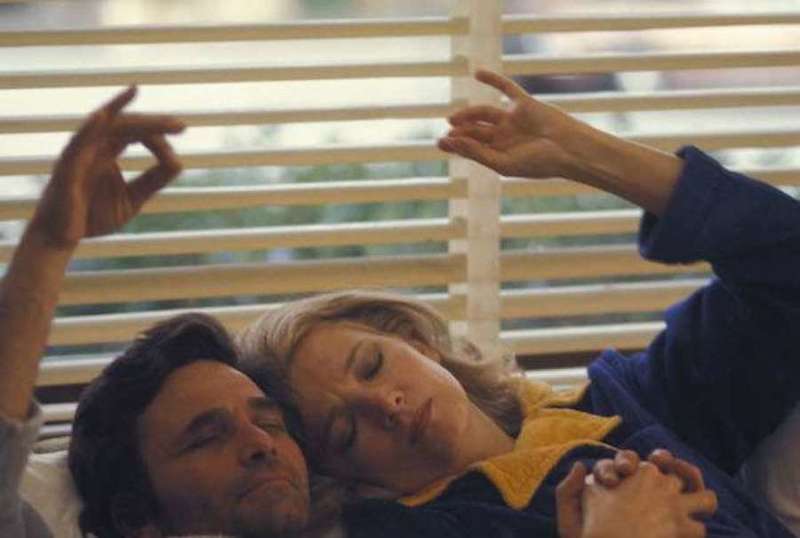Thumbnails is a roundup of brief excerpts to introduce you to articles from other websites that we found interesting and exciting. We provide links to the original sources for you to read in their entirety.—Chaz Ebert
1.
“Morgan Saylor on ‘Anywhere With You,’ ‘White Girl’ and ‘Novitiate’“: The astonishingly versatile actor chats with me at Indie Outlook about her latest role in Hanna Ladoul and Marco La Via’s new indie romance, “Anywhere With You,” now available on Digital and On Demand.
“[Indie Outlook:] ‘The five-minute shot of your face on the beach is absolutely mesmerizing, as Amanda goes through a near-operatic roller coaster of emotions. Was that scene always meant to be shot that way?’ [Saylor:] ‘No it wasn’t. Phone calls are always very technical on film. You have to figure out where the person on the other line is going to be, or if they’ll be there at all. The take we used was the first one we filmed. I don’t think we planned to do the second phone call in the same take, but I did it anyway and it worked. They really liked the idea of both calls being in one shot. We originally thought that we’d have Jake in the background calling to me, but there was also the problem of losing light. These are the sort of not-so-fun things that happen onset. I actually remember being very unsatisfied, performance-wise, with that scene, but now in retrospect, I’m quite pleased with it. It’s just so stressful and weird when you have only thirty minutes of that perfect sunset light to work with, and you don’t have the right people as the voices on the other end of the line. It’s really difficult to react to that, but it ended up being one of those magic things. The assistant director was like, ‘Should we call cut? Should we not?’ And they just kept going, and that’s what made it in the final cut. That scene has been talked about a lot, and I think that’s cool.”
2.

“How Caleb Deschanel Became the Surprise Oscar Nominee for ‘Never Look Away’“: According to Indiewire‘s Bill Desowitz.
“Like everyone else, Caleb Deschanel was taken by surprise with his sixth Oscar nomination for German-language nominee, ‘Never Look Away,’ about the horrors of war and the artistic process. The legendary cinematographer, best known for ‘The Black Stallion,’ ‘The Right Stuff,’ and ‘The Natural,’ now becomes the sentimental favorite to win his first Academy Award. ‘People kept coming up and raving about ‘Cold War’ and ‘Roma’ and I sheepishly told them that I had a foreign-language film and they said they had the DVD somewhere,’ Deschanel said. Clearly, enough branch members (bolstered by the large international bloc) were swayed by Deschanel’s exquisite cinematography to give him the nod. ‘Never Look Away,’ directed by Oscar winner Florian Henckel von Donnersmarck (‘The Lives of Others’), fictionalizes the life of experimental abstract German painter Gerhard Richter, who finds his artistic voice in the film after falling in love with a fashion student whose gynecologist father has a secret past as a Nazi eugenics leader.”
3.

“Sundance Film Festival 2019: ‘Extremely Wicked, Shockingly Evil and Vile’“: In her review posted at A Reel of One’s Own, Andrea Thompson voices her issues with Joe Berlinger’s controversial Ted Bundy biopic, though they aren’t what one might expect.
“The goal with ‘Extremely Wicked’ also isn’t to show or glorify the murders, or even to explain why Bundy committed them, with not a flashback to his childhood to be found. Instead, the movie shows how he was able to get away with them for so long. It’s much easier with a lead like Efron; it isn’t just his incredible performance and charisma that makes his take on Bundy so compelling. It’s his image and status as one of the most popular actors working today. ‘Extremely Wicked’ dares audiences to resist his charms, even if it constantly reminds us not only what Bundy was, but what he was capable of. We recognize him as human even as Liz notices small moments that reveal his inhumanity. He remained unrepentant until the last minute, probably only revealing at least some of the extent of his crimes in the hopes of prolonging his life. Bundy expertly manipulated the media, nearly everyone around him, and escaped authorities multiple times. Yet he also needed to believe his own lies, daring others as well as himself to imagine that this smiling, seemingly easygoing man could do such things. The issues the movie has stem from the fact that this is a story based on a memoir by Liz herself, and ‘Extremely Wicked’ is written and directed by men. As such, there’s little exploration of the more complex gender dynamics that led to many young women attending his trial.”
4.

“After years of disrupting Hollywood, Steven Soderbergh finds an unlikely ally in Netflix“: In conversation with Mark Olsen of The Los Angeles Times.
“‘We’re always looking for inefficiencies that can be addressed,’ Soderbergh says a few hours before his Slamdance tribute. ‘I want to be rolling as often as possible; the goal [in my filmmaking] is to be rolling camera, so I’m on the lookout for things that are getting in the way of that. The good news about this job generally in my mind is that every project is completely different and has a new set of demands and needs,’ he says. ‘And so already in my mind it throws open the idea of, ‘Well, how do we want to do it this time?’ I’m always looking to have an experience, that if it doesn’t annihilate the experience that I just had, at least there’s some aspect of it that’s in contrast. So I feel like it’s fresh.’ Though it may seem odd at first glance that Soderbergh would premiere his new film at Slamdance — or perhaps characteristically idiosyncratic — he has a longstanding relationship with the festival. As Slamdance president and co-founder Peter Baxter tells the story, the festival’s very first opening night, a 1996 premiere screening of Greg Mottola’s ‘The Daytrippers,’ which Soderbergh had produced, was nearly derailed when the projectionist had a heart attack (he lived) and the projector broke down as well. After someone else was electrocuted trying to fix it, Soderbergh, screwdriver in hand, got the projector running.”
5.

“11 Influential Facts About ‘A Woman Under the Influence’“: Eric C. Snyder of Mental Floss celebrates the genius of John Cassavetes’ 1974 masterpiece.
“Cassavetes gave a long interview to journalist Judith McNally at the New York Film Festival, after he’d spent 18 months trying to find a distributor. He was also burned out on making four movies in a row without studio help. ‘I can’t like making films anymore if they’re this tough,’ he said. ‘The pressures are too unnatural. I’m not crying, because I enjoy it. But I am saddened by the fact that I have physical limitations.’ Yet working with profit-minded studios was hard, too, since Cassavetes refused to bend on his artistic principles. ‘If that means I’ll never make [a] film again, then I’ll never make another film again,” he said. McNally followed up. ‘You don’t have any plans at all for another film?’ He replied: “Right now all I can hope is that [‘A Woman Under the Influence’] is extremely successful. And if it isn’t, I won’t make another one—that’s all. Which in itself is no great tragedy.’ He did, in fact, go on to make five more films before his death in 1989.”
Image of the Day

At Vulture, our own Donald Liebenson spoke with “The Critic” co-creator Al Jean about his five favorite episodes of his uproarious and all-too-short-lived show, including the one from season two starring Gene Siskel and Roger Ebert as themselves (who else?).
Video of the Day
The Top 11 Funniest Siskel and Ebert Reviews are ranked by Doug Walker, a.k.a. the Nostalgia Critic of ChannelAwesome.com, who makes an impassioned argument for why these gems of witty discourse deserve to be preserved for future generations.












